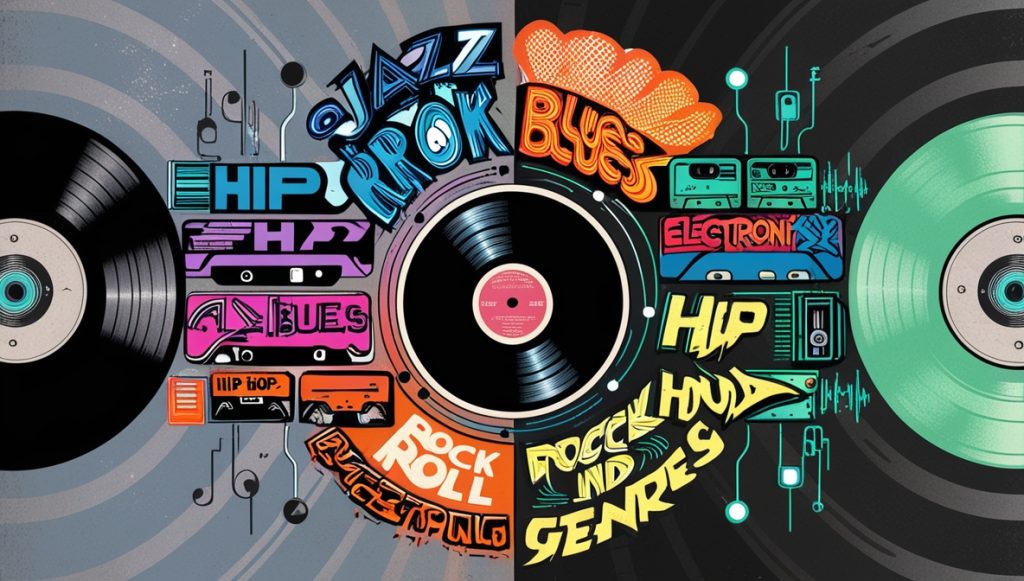Music has evolved significantly over time, driven by cultural, technological, and social changes. The journey of music genres reflects the dynamic nature of human expression, influenced by historical events, technological advancements, and the fusion of global sounds.
One of the earliest forms of structured music was classical music, which flourished in Europe during the Middle Ages, Renaissance, Baroque, and Classical periods. Classical music is characterized by complex compositions, orchestral arrangements, and strict forms like sonatas, symphonies, and operas. Composers such as Beethoven, Mozart, and Bach are icons of this genre, influencing not only classical music but the development of many other genres.
In the late 19th century, the birth of jazz in the United States marked a significant shift in music. Rooted in African American culture, jazz combined African rhythms with European harmonic structures, giving birth to a genre known for improvisation, syncopation, and swing. Pioneers like Louis Armstrong and Duke Ellington revolutionized jazz, which later branched into sub-genres such as bebop, swing, and fusion.
Around the same time, blues music emerged from the deep South, reflecting the struggles and emotions of African American communities. The raw emotion and simple chord progressions of blues laid the foundation for other genres like rhythm and blues (R&B) and rock and roll. Icons like B.B. King, Muddy Waters, and Robert Johnson are celebrated as trailblazers of blues.
The 1950s and 1960s saw the rise of rock and roll, a genre that fused elements of blues, jazz, and country music. Artists like Elvis Presley, Chuck Berry, and Little Richard brought rock music to the mainstream, leading to the “British Invasion” of the 1960s, spearheaded by bands like The Beatles and The Rolling Stones. This era also gave birth to sub-genres like hard rock, psychedelic rock, and progressive rock, each reflecting the experimental and rebellious spirit of the time.
The 1970s introduced disco and punk rock, two genres that couldn’t have been more different. Disco, characterized by upbeat rhythms and danceability, dominated nightclubs worldwide, with artists like Donna Summer and the Bee Gees leading the charge. On the other hand, punk rock, with its raw sound and anti-establishment lyrics, appealed to the counterculture. Bands like The Ramones and The Sex Pistols became icons of this movement.
Hip-hop emerged in the 1980s, originating in the Bronx, New York. Combining spoken word (rapping), DJing, graffiti art, and breakdancing, hip-hop became a powerful voice for marginalized communities. Pioneers like Grandmaster Flash and Run-D.M.C. set the stage for hip-hop’s global influence.
The 21st century brought even more fusion and experimentation with electronic music, indie, and alternative rock, pop, and hip-hop dominating global charts. Technology, particularly the rise of streaming platforms, has allowed for unprecedented access to diverse sounds, enabling the blending of genres like never before. Today, genres are more fluid, with artists drawing from multiple influences to create unique sounds that defy traditional labels.
The evolution of music genres is a testament to the creativity of artists and the ever-changing nature of cultural expression. Each genre carries the influence of its predecessors while pushing boundaries to create something new. Music, in all its forms, remains a reflection of the times and a powerful force for connection.



